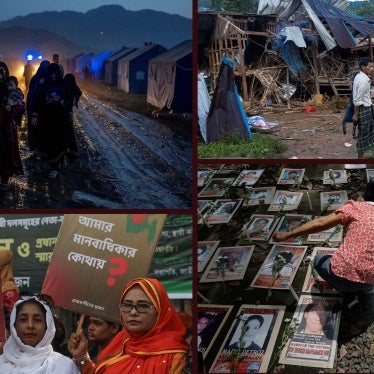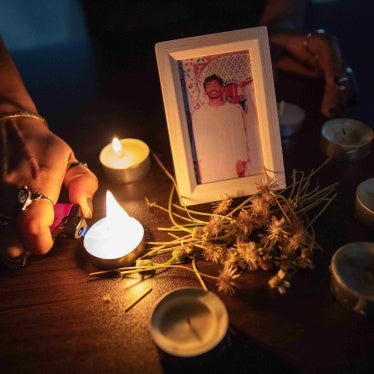(Bangkok) – The Nepali government’s push during the past year to advance a transitional justice process related to the country’s 1996-2006 internal armed conflict requires further effort to meet victims’ needs and international legal standards, Human Rights Watch said today in its World Report 2024.
The government made a commitment that included reparations for victims and accountability for grave crimes under international law. Although a draft bill proposed some positive steps, it currently contains provisions that will prevent successful implementation.
“Victims, survivors, and society at large, have waited too long for justice and reparations, and an end to the backsliding that has undermined the rule of law in post-conflict Nepal,” said Meenakshi Ganguly, deputy Asia director at Human Rights Watch. “The bill which is currently before parliament has raised hopes of progress, and it should be appropriately amended then passed into law.”
In the 740-page World Report 2024, its 34th edition, Human Rights Watch reviews human rights practices in more than 100 countries. In her introductory essay, Executive Director Tirana Hassan says that 2023 was a consequential year not only for human rights suppression and wartime atrocities but also for selective government outrage and transactional diplomacy that carried profound costs for the rights of those not in on the deal. But she says there were also signs of hope, showing the possibility of a different path, and calls on governments to consistently uphold their human rights obligations.
The transitional justice bill presented to parliament in March 2023 was in response to a 2015 Supreme Court ruling that Nepal’s existing legislation is unlawful, particularly because it allows for amnesties for serious crimes under international law. Some aspects of the new bill can be the basis for progress, Human Rights Watch said. It guarantees the right to reparation and mandates Nepal’s Truth and Reconciliation Commission to study the root causes of the conflict and recommend reforms.
However, amnesties for serious crimes are contrary to international law and standards, and raise serious concerns for victims. United Nations experts warned that without amendments the bill would “place Nepal in contravention of its international human rights obligation to investigate and punish serious human rights violations.” In late 2023, a parliamentary committee showed that progress can be made when it proposed further amendments that would address some but not all shortcomings.
The failure to address serious crimes of the conflict era has contributed to a crisis of impunity in post-conflict Nepal. In response to alleged abuses by the security forces, such as deaths in custody resulting from torture, the authorities typically establish one or more investigative committees and offer compensation to families, but fail to hold anyone accountable.
Although 40 percent of the population is aged under 18, children receive only a small share of social protection spending. Despite earlier pledges to do so, the successful Child Grant program was not extended in the 2023 budget. The absence of social protection further exposes children to the harmful effects of economic and climate related shocks, and unpredictable crises like the Covid-19 pandemic which drove many families into poverty and children into child labor.
Nepal’s Supreme Court has a globally recognized record of rulings upholding the rights of lesbian, gay, bisexual, and transgender (LGBT) people, although implementation has been piecemeal. In June, in a significant ruling, the Supreme Court ordered the government to immediately begin registering same-sex marriages but two lower courts refused to implement the ruling.









